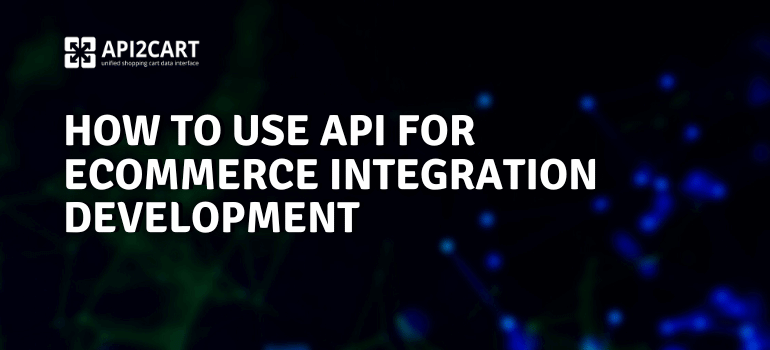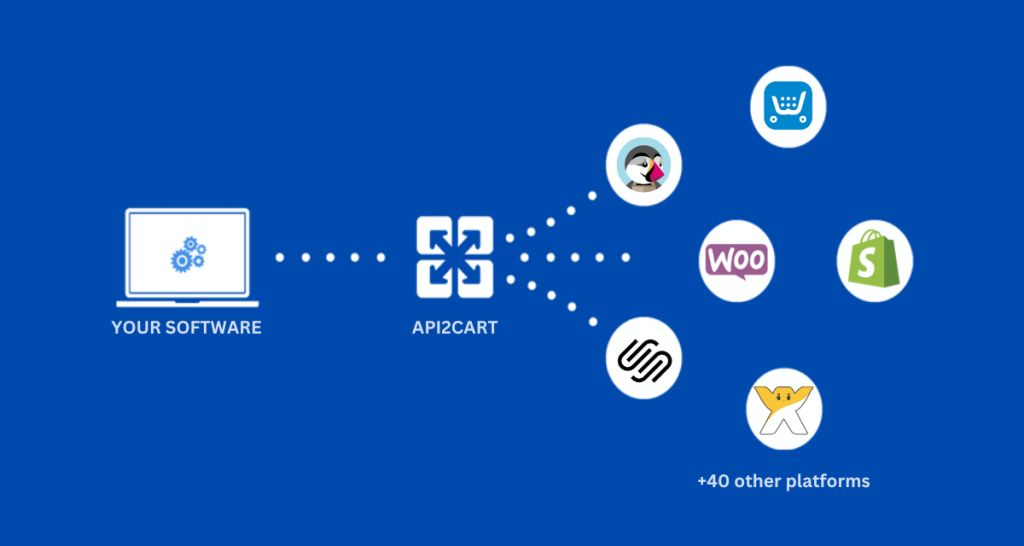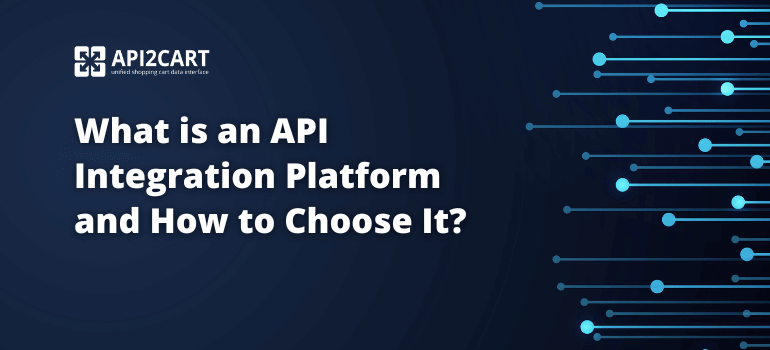
If you're a software developer, chances are you know how tedious it can be to implement eCommerce integrations for different platforms. The process of manually coding APIs and data flows into your applications is often painstaking and timely. However, with the correct information and tools at your disposal, developing effective eCommerce integrations doesn't have to be so challenging. In this blog post, we'll explore the various ways API technology can help streamline your development process and quickly implement robust eCommerce integrations that meet all of your customers' needs.
So, let's start to explore how exactly to use API for eCommerce integration development.
What is API?
An Application Programming Interface (API) provides a set of protocols, routines and tools for building software applications. It enables two applications to communicate with each other in order to perform specific tasks without requiring them to share any internal logic or data structures. APIs are often used to facilitate access to external web services and data sources, which can significantly simplify the development process. By leveraging existing functionality provided by an API, developers can quickly create detailed integrations that maintain their own codebase but also take full advantage of the resources offered by the third-party service. For example, when integrating an eCommerce platform with your application, you could use an API to retrieve the product information from the store's database and display it in your solution.
An eCommerce API is a crucial tool for communication among various applications and eCommerce platforms, enabling a seamless exchange of data, workflows, and services. With these APIs, eCommerce platforms can easily integrate and communicate with other integrated systems, such as CRMs, ERPs, and shipping software, streamlining the overall process and improving customer experience.
What are eCommerce APIs Examples?
There are different eCommerce APIs. The most popular are Magento API, Shopify API, Ecwid API, Amazon API, and eBay API.
Magento API allows developers to communicate easily with the Magento system. With support for both SOAP and REST, Magento API offers a range of powerful features that make it an essential tool for any eCommerce software business looking to stay ahead of the game.
Shopify API allows software developers to tap into the wealth of data generated by Shopify-based stores and use it to optimize their own products and services.
Ecwid API is a RESTful API that uses oAuth2 authentication to provide easy access to all kinds of e-store data, from products and categories to orders, customers, and discount coupons. With the Ecwid API, it is possible to read, update, create, and delete data with ease.
With Amazon API, programmers can access the logic, data, and functionality of Amazon's platform and build custom solutions that seamlessly integrate with Amazon's ecosystem. From retrieving product information to managing orders and shipping, Amazon API enables software businesses to leverage the power of Amazon and create seamless experiences for their customers.
Why The Usage of eCommerce APIs Is Necessary for Software Providers?
The use of eCommerce APIs is becoming increasingly common. By using an existing integration, businesses save both time and resources as they don’t need to build something from scratch. As such, developers can better use their time and efforts by utilizing the pre-built templates available through eCommerce APIs. Additionally, these APIs are reliable since they have been ironed out by the teams that created them.
What is eCommerce Integration?
eCommerce integration is the process of linking an eCommerce platform with other software applications, such as accounting and point-of-sale systems. This enables businesses to take advantage of existing data, services and functions offered by eCommerce platforms. Through eCommerce integration, businesses are able to streamline their operations, improve customer experience and maximize profits.
Companies that provide eCommerce software must have integrations with eCommerce platforms in order to build connections between their products and those platforms. The integrations allow the software to use data retrieved from the shopping platforms so that it can perform its function. Software solutions require data from the e-stores to perform their functions so they can help e-merchants automate their business operations.
How to Use API for eCommerce Integration Development?
The key to using an API for eCommerce integration development is understanding how the different APIs work. Developers should research the types of data and services provided by each platform, as well as the methods for connecting to them. Once that is done, it is important to create a strategy for integrating with the available APIs and testing them.
The easiest way to connect any software to multiple eCommerce platforms is to use a unified API provided by API2Cart.

With API2Cart, you can connect your software with over 40 shopping platforms, including Magento and Shopify, in one go. This is all made possible by using the REST API standard, which ensures smooth and efficient communication between your software and shopping platforms. The best part is that you won't need to develop separate eCommerce integrations, and you won't have to worry about maintenance and updates. With API2Cart, you'll have access to essential store data from multiple shopping platforms, making it easy to retrieve and modify data on products, orders, shipping details, customers, and much more.
You can test API2Cart for free for a month. All you need to do is to register your free trial account.



